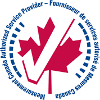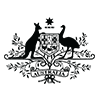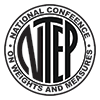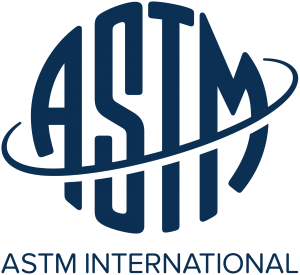Regulations & Compliance
Weighing, like many industries, is governed by regulations and compliance, in order to ensure that businesses practices are fair and customers receive value for money when weighing is part of a transaction.
Regulations and compliance also ensure that weighing scale manufacturers supply high quality, dependable products.
On this page, we list the regulations, compliance, governing bodies and Adam Equipment memberships that ensure when you buy from us, you buy a high quality, dependable weighing device that will provide many years of use.
Our Commitment to Quality
Quality is at the heart of the organisation and we are committed to work closely with all our customers and suppliers to maintain the highest quality standard for our products, for after-sales services and to continuously improve in all operating practises.
Metrology Approvals
In many regions and countries, scales and balances used for trade and other commercial transactions must meet certain requirements before receiving approvals. Standards are issued by different, regional or local organizations. Adam Equipment is authorised to perform Legal Verifications in accordance with Directive 2014/31/EU on NAWI: Module D: Conformity to type based on quality assurance of the production process.
Electrical Specifications and Material Safety Standards
Adam Equipment products are carefully designed and thoroughly tested to ensure compliance with all required electrical specifications and safety standards. Material Safety Data Sheets (MSDS) are available for all products containing batteries or other potentially hazardous materials. Adam's product manuals provide information about specific regulations. Contact us with any questions about compliance or to request an MSDS.
WEEE Certification
Adam Equipment Co. Ltd is part of Veolia's WEEE membership scheme. This means we can dispose of old electrical equipment in a safe, responsible way, complying with the legal requirements of the WEEE Directive.
Click below to see our WEEE certificate.
Metrology Approvals
Click the + icons to read more.
| EC Type Approval can be granted for most types of Non-Automatic Weighing Instruments (NAWI), after the correct testing procedure is performed by an approved body. A test report and certificate are issued to the manufacturer or importer of the product that has undergone the type approval test. Effective April 20, 2016, all type-approved devices that are "placed on the market" in an E.U. member state must conform to the E.U. Directive 2014/31/EU ~ EN45501:2015 (equivalent to OIML R76). |
 | For Canadian retail settings, Measurement Canada approves scales and balances used for trade. Measurement Canada evaluates all retail and commercial measuring devices used in the Canadian marketplace, and issues certification following their approval. Adhering to regulations outlined in the Weights and Measures Act, Measurement Canada ensures equity and accuracy where goods and services are bought and sold on the basis of measurement. Learn more about Measurement Canada at www.ic.gc.ca. |
 | In Australia, scales used to measure goods sold by weight must be inspected and approved by the National Measurement Institute (NMI). NMI is an active participant in OIML's technical activities and is a member of the governance body, the Presidential Council of the International Committee for Legal Metrology (CIML). This ensures input into the development of international recommendations, so Australia's requirements for legal metrology are harmonised with international requirements. For more information, visit www.measurement.gov.au. |
 | In South Africa, scales must receive approval from the National Regulator for Compulsory Specifications (NRCS). Once the NRCS issues approval, a verification mark is attached to all devices, in the form of a stamp, sticker or seal. This verification mark must be readily visible on the device and includes the year of approval, along with the name of the specific officer and accredited laboratory inspecting the equipment. The NRCS also performs frequent compliance checks to ensure that retailers are using approved scales, and that the scales carry the proper approval verification mark. Adam products have been independently tested to meet the Compulsory Specification for the Safety of Electrical and Electronic Apparatus – VC8055 and have the NRCS letters of authority. For more information on NRCS and the scale approval process, go to the legal metrology section at www.nrcs.org.za. |
 | The National Type Evaluation Program (NTEP) oversees the testing of weighing equipment by U.S. government laboratories. NTEP approval is recognized in the United States and other countries. The basic requirements are listed in Handbook 44. To ensure compliance with national requirements, NTEP uses 12 participating laboratories to examine the design, features, operating characteristics and performance of weighing and measuring devices. Additionally, NTEP acts as a clearinghouse for enforcement, using expertise and input from regulatory and industry representatives to develop consensus on standards and procedures. Learn more at www.ncwm.net. |
 | The International Organization of Legal Metrology (OIML) provides global harmonization of legal metrology procedures. OIML members comprise countries that use OIML recommendations to create national metrology standards. Within the European Union, the European standard EN45501 is based on OIML R76 for Non-Automatic Weighing Equipment. Approved scales and balances have been tested by standards laboratories that are certified as meeting published standards. These standards cover the metrology, operation, construction, security, labeling and electromagnetic characteristics of the weighing equipment. Approved devices are given labels identifying conformance, fitted with methods to seal the calibration if required, and then issued a Certificate of Conformity. Visit www.oiml.org for further information. |
 | ASTM International publishes more than 12,500 global technical standards that are developed by its international membership of 30,000+ technical experts throughout more than 140 participating countries. ASTM standards offer guidelines, specifications, test methods and procedures to ensure quality, safety, and performance. Industry sectors include manufacturing, safety, quality control, construction, medical, metals & materials and environment. Adam Equipment offers calibration weights that conform to ASTM standards and tolerances. Visit www.astm.org for further information. |
